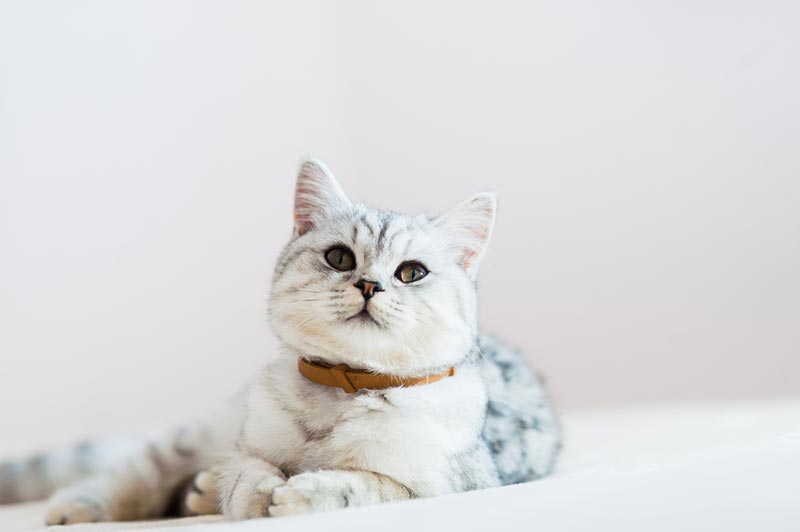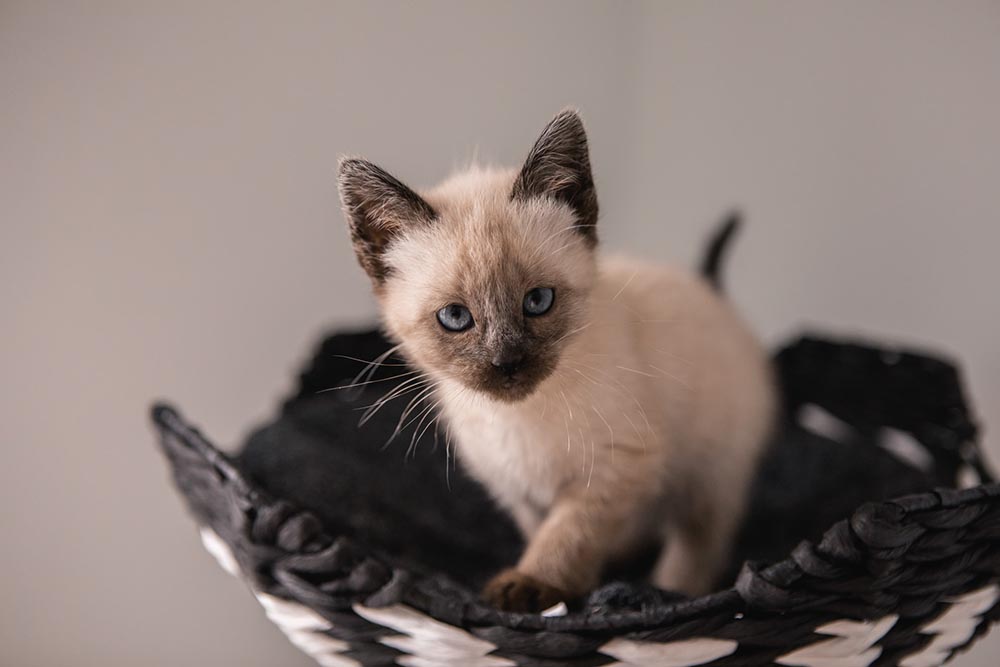Is Dieffenbachia Toxic to Cats? Vet-Reviewed Info to Keep Your Cat Safe
By Hallie Roddy
Updated on
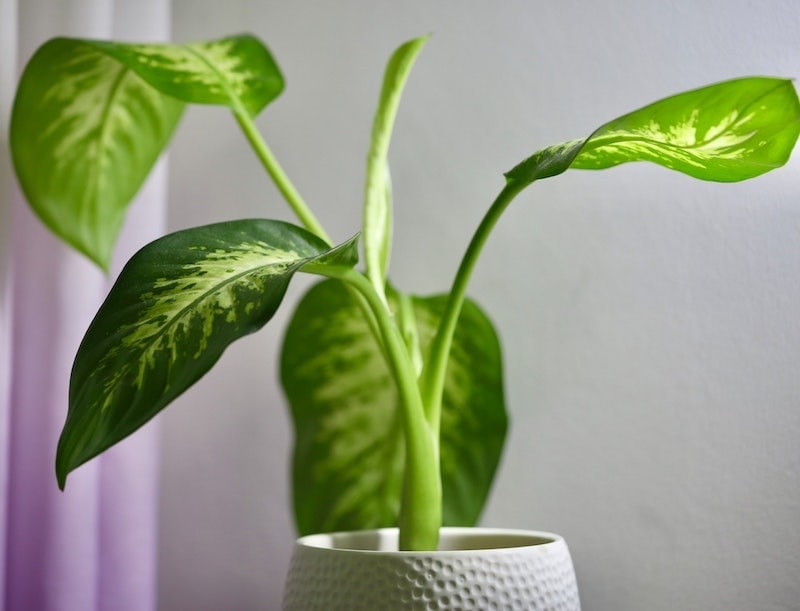
Click to Skip Ahead
There are all sorts of plants that are not safe for our cats to be around. Even though we want some of the prettiest plants in our homes, you have to be careful about what you’re exposing your pets to. One common plant that you might be tempted to bring home is Dieffenbachia.
While this plant is beautiful and easy to care for, you might be hurting the pets around you by bringing it home. Dieffenbachia is toxic to cats and could have some severe health consequences. Read on to find out more.
An Overview of Dieffenbachia
| Scientific Name | Dieffenbachia |
| Family | Araceae |
| Common Names | Giant Dumb Cane, Tropic Snow, Dumbcane, Exotica, Spotted Dumb Cane, Exotica Perfection, Charming Dieffenbachia |
| Toxicity | Toxic to cats, toxic to dogs |
| Toxic Principles | Proteolytic enzyme, insoluble calcium oxalates |
What Is Dieffenbachia?
Dieffenbachia, also commonly called Dumbcane, is a tropical perennial flowering plant. There are currently over 50 different species. These plants are commonly sold and kept as houseplants because they tolerate shade and have pretty and unique appearances. If you have any pets in the home, it is crucial to understand that these plants are poisonous to pets that chew on or eat them.

Signs of Dieffenbachia Poisoning in Cats
Consumption of a Dieffenbachia plant by cats or dogs may cause severe irritation to the pet’s mouth, stomach, or esophagus. This happens mainly because of the insoluble calcium oxalate crystals—the equivalent of a human chewing fiberglass! Whenever your pet chews on the leaves, the crystals are released, and they penetrate the tissues inside your cat’s mouth and gastrointestinal tract. There will be a burning sensation within minutes of exposure. Here are some other common signs of Dieffenbachia poisoning:
- Drooling
- Pawing at mouth
- Oral pain
- Vomiting
- Decreased appetite
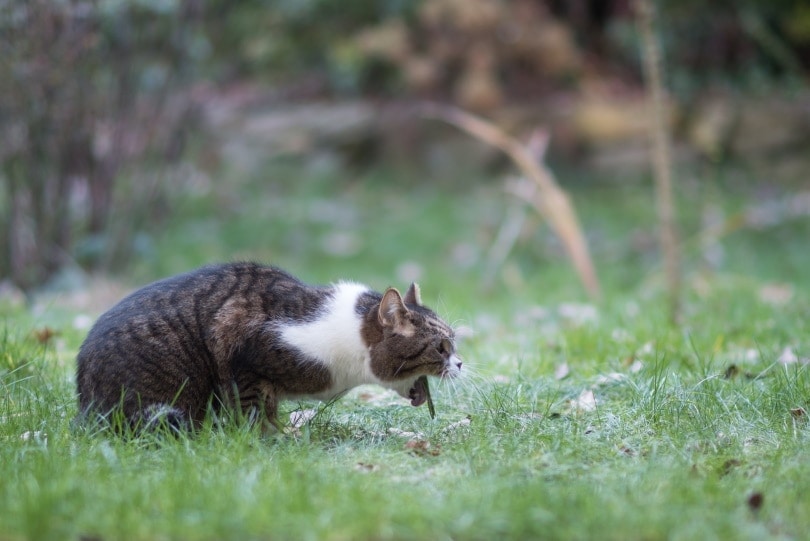
Ways to Keep Your Cat Safe From Toxic Plants
Dieffenbachia is not severely toxic. Any pets that consume usually get better without any severe consequences. However, this doesn’t mean that it won’t be painful, and you should seriously consider taking a trip to the vet. Your veterinarian will be able to administer and prescribe pain medication until the oral sores are healed. They might also prescribe a gastroprotection medication to help protect the lining of their stomach and esophagus.
The Dieffenbachia plant is a common houseplant that many people keep in their homes. If you insist on having one, then ensure that it is in a room or spot in the house where no animals will have access to it. Even one small bite from a leaf could cause oral irritation.
We all know that cats are excellent climbers and jumpers and we recommend keeping the plant in a room with the door closed or in a high-up area without anything that your cat could climb on or jump from to reach it.
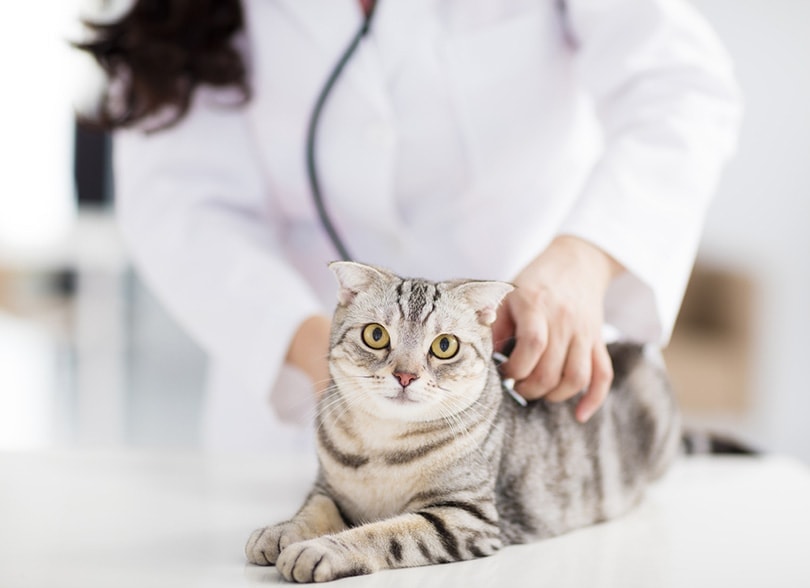
Other Unsafe Plants to Keep at Home
Dieffenbachias aren’t the only unsafe plants to expose your cats to. Here are some other toxic houseplants that you might want to reconsider:
Final Thoughts
Even though they do look pretty and have minimal care requirements, it’s going to save everyone a lot of time, pain, and money if you refrain from keeping any Dieffenbachia plants in the house if you have cats. Your cat’s health is more important than a plant that could easily be kept outside. Of course, if you feel you must have one, then remember to keep it in a safe place where your cats and other pets can’t reach it.
Related Reads:
Featured Image Credit: ANKUR MADAN, Unsplash




